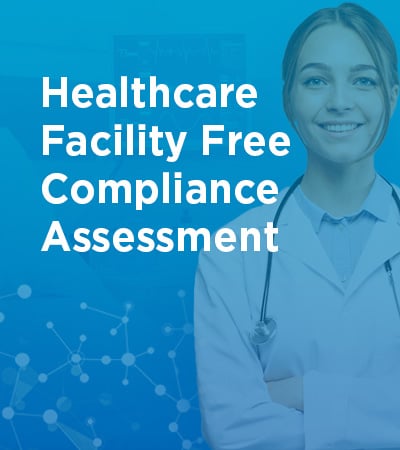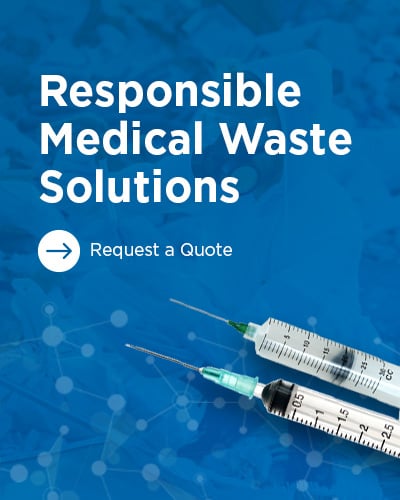 It is no secret that there is a vast ongoing opioid epidemic in America.
It is no secret that there is a vast ongoing opioid epidemic in America.
The CDC claims that more than 932,000 people have died since 1999 from a drug overdose. Nearly 75% of drug overdose deaths in 2020 involved an opioid. Opioids are substances that work in the body's nervous system or in specific receptors in the brain to reduce pain intensity.
According to the CDC, prescription opioids are often used to treat chronic and acute pain and, when used appropriately, can be an essential component of treatment. However, serious risks are associated with their use, and it is necessary to consider the risks of using prescription opioids alongside their benefits. These risks include misuse, opioid use disorder (addiction), overdoses, and death.
From 1999 to 2020, more than 263,000 people died in the United States from overdoses involving prescription opioids. In addition, overdose deaths involving prescription opioids nearly increased five times from 1999 to 2020.
Opioids are prescribed drugs that are used to help patients address pain. Opioids can be prescribed by healthcare providers to treat moderate to severe pain. It is essential to seek a healthcare providers guidance in taking any Opioids because these drugs can have serious risks and side effects. Some of the more common types are oxycodone (OxyContin), hydrocodone (Vicodin), morphine, and methadone. Fentanyl is a synthetic opioid pain reliever.
According to the Mayo Clinic, opioids are a broad group of pain-relieving drugs that work by interacting with opioid receptors in your cells. Opioids can be made from the poppy plant — for example, morphine (Kadian, Ms. Contin, others) — or synthesized in a laboratory — for example, fentanyl (Actiq, Duragesic, others).
When opioid medications travel through your blood and attach to opioid receptors in your brain cells, the cells release signals that muffle your perception of pain and boost your feelings of pleasure.
The CDC has also stated that more than 191 million prescriptions for opioids were dispensed to patients in the US in 2017—with wide variation across states. Some patients, once addicted, can be hard to stop future prescriptions. Furthermore, in 2016, a total of 11.5 million patients in the US reported misusing prescription opioids in the past year. It's clear that abusing prescription especially opioids can negatively affect a person's health and can even lead to death. Benzodiazepines, another Opioid is a central nervous system depressants that sedate, induce sleep, prevent seizures, and relieve anxiety. Examples include alprazolam (Xanax®), diazepam (Valium®), and lorazepam (Ativan®). Avoid taking benzodiazepines while taking prescription opioids whenever possible.
There are countless stories of people that have innocently started using prescription opioids prescribed by their physicians for chronic pain treatment, surgical procedures, and other genuine medical necessities, only to succumb to the addictive nature of these drugs and begin abusing them.
There has been a steady decline in physicians' readiness to prescribe such medications due to the current crisis and further education on alternative therapies for pain management.
Some of these alternatives presented by the CDC are:
- Cognitive behavioral therapy (CBT) – is a psychological, goal-directed approach in which patients learn how to modify physical, behavioral, and emotional triggers of pain and stress.
- Exercise therapy, including physical therapy.
- Certain medications for depression or for seizures, some of which can also treat pain.
- Interventional therapies, like injections
- Exercise and weight loss
- Other therapies, such as acupuncture and massage
- Acetaminophen (Tylenol®), ibuprofen (Advil®), naproxen (Aleve®)
How Do I Dispose of Old Medications Near Me?
Any unused medications can present a health hazard when not properly stored and disposed of. It has been shown that expired medication's efficacy decreases and can even, in certain circumstances, become toxic.
The FDA states that expired medications or medical devices can be ineffective due to a change in chemical composition or a decrease in strength. In addition, certain expired medications are at risk of bacterial growth, and sub-potent antibiotics can fail to treat infections, leading to more severe illnesses and antibiotic resistance.
When you are finished with any prescription medications, you have two essential options. According to the FDA, the best disposal method is a take-back program. Take-back programs can typically be found in local pharmacies, doctor's offices, fire departments, police departments, hospitals, and some retail settings. There are even some permanent disposal locations that are registered with the US Drug Enforcement Agency to collect your unused or expired medicines. You can call the Drug Enforcement Agency Diversion Control Division Registration Call Center at 1-800-882-9539 for more information. Always make sure to remove your personal information from the prescription bottles and products before disposal. Don't hesitate to contact your local pharmacy and/or doctor's office to inquire about medication drop-offs. This will ensure that these medications are disposed of efficiently and will stay out of the hands of people that may be tempted to abuse them.
Secondly, perhaps surprisingly, the FDA approves the flushing of certain unused medications when there are no take-back locations near you. The FDA has stated that if you have received disposal instructions for any drug or device from your healthcare provider (e.g., doctor, pharmacist), you should follow all instructions as given for your unused or expired medicine. Frequently the DEA provides nationwide drug disposal options you can use to dispose of these items at a location near you, but in the event, that you are unable to get to any of these locations, you can check the Federal Drug Administrations' acceptable flush list to see if your prescription is on or drugs are on the list. Medicines on the flush list are those (1) sought-after for their misuse and/or abuse potential and (2) that can result in death from one dose if inappropriately taken. If children, adults, or pets in your home accidentally or intentionally ingest, touch, misuse, or abuse a medicine on the flush list, they can suffer serious consequences, including death. An example of a medicine on the flush list is the fentanyl transdermal system (also known as a fentanyl patch), which contains an opioid. Suppose a drug take-back program is not available. In that case, flushing medicines on the flush list helps keep everyone in your home safe by making sure these powerful and potentially dangerous medicines (when used inappropriately) are not accidentally or intentionally ingested, touched, misused, or abused.
Remember, don't flush your medicine unless it is on the flush list.
Drugs That Contain Opioids
Any drug that contains the word "buprenorphine."
BELBUCA, BUAVAIL, BUTRANS, SUBOXONE, SUBUTEX, ZUBSOLV
Any drug that contains the word "fentanyl."
ABSTRAL, ACTIQ, DURAGESIC, FENTORA,ONSOLIS
Any drug that contains the word "hydrocodone" or "benzhydrocodone"
SIPADAN, HYSINGLA ER, NORCO, REPREXAIN, VICODIN, VICODIN ES, VICODIN HP, VICOPROFEN, ZOHYDRO ER
Any drug that contains the word "hydromorphone"
EXALGO
Any drug that contains the word "meperidine"
DEMEROL
Any drug that contains the word "methadone"
Any drug that contains the word "morphine"
ARYMO ER, AVINZA, EMBEDA, KADIAN, MORPHABOND ER, MS CONTIN, ORAMORPH SR
Any drug that contains the word "oxycodone"
CODOXY, COMBUNOX, OXADYDO (formerly OXECTA), OXYCET, OXYCONTIN, PERCOCET, PERCODAN, ROXICET, ROXICODONE, ROXILOX, ROXYBOND, TARGINIQ ER, TROXYCA ER, TYLOX, XARTEMIS XR, XTAMPZA ER
Any drug that contains the word "oxymorphone"
Any drug that contains the word "tapentadol"
NUCYNTA, NUCYNTA ER
Drugs That Do Not Contain Opioids
Any drug that contains the term "sodium oxybate" or "sodium oxybates"
XYREM, XYWAV
Diazepam rectal gel
DIASTAT, DIASTAT ACUDIAL
Methylphenidate transdermal system
DAYTRANA
The FDA has performed studies on the impact of the environmental factors of flushing these medications and has found that there has been no sign of ecological negative effects for recommended drugs. Furthermore, the Food and Drug Administration has published a few papers to assess this concern, finding negligible risk of environmental impacts caused by flushing recommended drugs. This is a somewhat controversial issue, and there have been other studies, such as through the Minnesota Pollution Control Agency, that have shown that these pharmaceuticals can pollute our water and unintentionally expose us to the chemicals in these medications. Studies have found that medicines flushed down the drain can contaminate our lakes and streams, hurting fish and other aquatic wildlife, and end up in our drinking water. Again, the best source of unused medication disposal is through local take-back programs and flushing medications should always be a last resort and follow the FDA guidelines and the approved list.
You should always make sure that your medications are properly stored and have not expired; both conditions affect the efficacy of the medication and, in some circumstances, can become toxic.
The FDA states that expired medical products can be less effective or risky due to a change in chemical composition or a decrease in strength. Certain expired medications are at risk of bacterial growth, and sub-potent antibiotics can fail to treat infections, leading to more serious illnesses and antibiotic resistance.
There has been progressed in the battle against the opioid epidemic over the last several years, however, much work is still to be done. Further education on alternative pain management, fewer opioid prescriptions, further regulations on prescriptions, and fulfillment of those prescriptions all play a vital role. It is also of utmost importance that patients are educated on how to dispose of their medications when they are no longer in use and/or expired so that they do not contribute to the ongoing abuse of prescription medications.
More information on how you can dispose of medications near you
PureWay can help you dispose of your used and unused medications safely. Visit our pharmaceutical waste disposal page to learn more about safe medication disposal options for your home or business.



.jpg?width=4500&height=2871&name=shutterstock_562612936%20(1).jpg)


